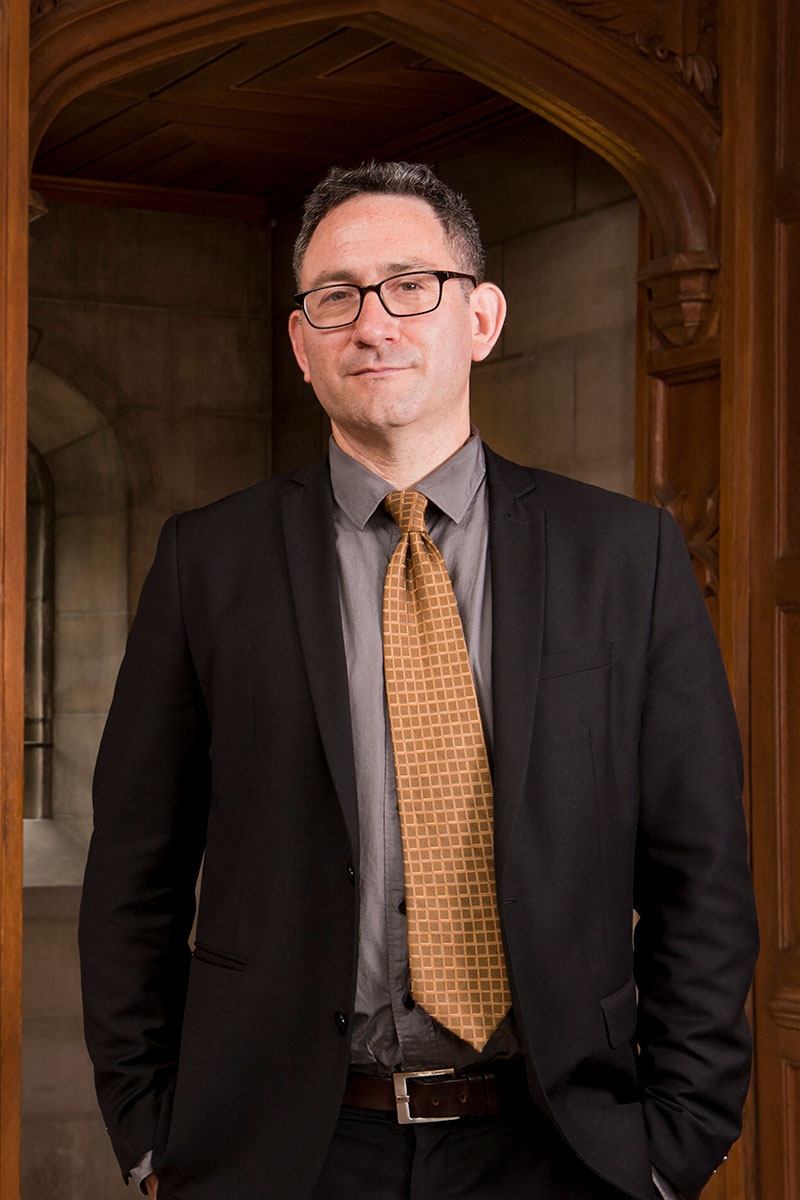Joshua Schreier

Joshua Schreier was raised in Cambridge, Massachusetts and Baltimore, Maryland. He received his BA from the University of Chicago, and his MA and PhD from New York University.
Schreier works at the intersection of Middle Eastern, Algerian, Jewish, and French histories. His research focuses on North African Jews in the first decades of the French occupation of Algeria, in the middle decades of the nineteenth century. He is interested in how the invasion affected local commercial networks and alliances, how the occupiers turned to local notables for help and expertise, and how pre-colonial elites continued to exercise influence under the new order. He also looks at how the French deployed the ideology of “civilization” to consolidate colonial rule, even while local actors co-opted, reformulated, or deflected this ideology.
Joshua Schreier was raised in Cambridge, Massachusetts and Baltimore, Maryland. He received is BA from the University of Chicago and his MA and PhD from New York University. He has also studied at the Hebrew University of Jerusalem and Middlebury College.
Schreier works at the intersection of Middle Eastern, Algerian, Jewish, and French histories. His research focuses on French colonialism in Algeria, and notably how several deeply-rooted North African Jewish communities responded to French imperial policy in the years before the rise of the “Imperial” (Third) Republic in 1870.
His first book, “Arabs of the Jewish Faith:” The Civilizing Mission in Colonial Algeria, looks at how French officials deployed the ideology of “civilization” to consolidate colonial rule, but also how local actors co-opted, reformulated, or deflected it. It also explores how French lawmakers and legal thinkers used Jewish and Muslim religious law, and specifically those concerning the family, to deny or confer citizenship to Algerian Muslims and Jews. It is particularly interested in how and why French policy drove cultivated and reified differences between religious groups in their new colony.
His recently published second book, The Merchants of Oran: A Jewish Port at the Dawn of Empire, weaves together the history of a Mediterranean port city with the lives of Oran’s Jewish mercantile elite before and during the transition to French colonial rule. Through the life of Jacob Lasry and other influential Jewish merchants, it tells the story of how this diverse and fiercely divided group established themselves in Oran in the decades after the Regency of Algiers dislodged the Spanish in 1792, during a period of relative tolerance and economic prosperity. In newly-Muslim Oran, Jewish merchants found opportunities to ply their trades, dealing in both imports and exports. On the eve of France’s long and brutal invasion of Algeria, Oran owed much of its commercial vitality to the success of these Jewish merchants. It also explores how French policies began collapsing Oran’s diverse Jewish inhabitants into a single social category, legally separating Jews from their Muslim neighbors, and creating a racial hierarchy. It argues that France’s exclusionary policy of “emancipation,” far more than older antipathies, planted the seeds of twentieth-century ruptures between Muslims and Jews.
Professor Schreier teaches an introductory course on the modern Middle East, as well as intermediate courses on the Israel-Palestine conflict. He also teaches a class that weaves together the histories of France and Algeria over the past several centuries. He also leads an advanced seminar on the historiography of the modern Middle East. Schreier calls Swift Hall home, but also participates in Vassar’s Jewish Studies program and often serves as a thesis adviser for students in the International Studies program.
Contact
Box 597
Research and Academic Interests
North African History; Middle Eastern History; Jewish History; French History; Colonialism; Gender
Departments and Programs
Courses
HIST 174 - The Emergence of the Modern Middle East
HIST 300 - Thesis Preparation
HIST 385 - Colonialism, Nationalism, and Social Identities in the Modern Middle East
Selected Publications
The Merchants of Oran: A Mediterranean Port at the Dawn of Empire, 1792-1856 (Stanford, CA: Stanford University Press, 2017)
Arabs of the Jewish Faith: The Civilizing Mission in Colonial Algeria (New Brunswick, NJ, and London: Rutgers University Press, September 2010).
“A Jewish Riot Against Muslims: The Polemics of History in Late Colonial Algeria,” Comparative Studies in Society and History 58:3 (2016): 746-773.
“From Mediterranean Merchant to French Civilizer: Jacob Lasry and the Economy of Conquest in Early Colonial Algeria,” International Journal of Middle East Studies 44 (November 2012), 631-649.
“The Creation of the “indigène israélite:” Merchants, Jews, and the Myth of “Civilizing” in Early Colonial Oran,” Journal of North African Studies 17:5 (November 2012), 757-772.
“Napoleon’s Long Shadow: Morality, Civilization, and Jews in France and Algeria, 1808-1870,” French Historical Studies 30:1 (Winter, 2007): 77-103
“‘They Swore upon the Tombs Never to Make Peace With Us,’ Algerian Jews and French Colonialism: 1845-1848” in Algeria & France, 1800-2000: Identity, Memory, Nostalgia, Patricia Lorcin, ed. (Syracuse, NY: Syracuse Univ. Press, 2006): 101-116.
Additional Publications
“Algerian Jews, French Colonialism, and the Question of Non-Elite History,” in AJS (Association for Jewish Studies) Perspectives, “The People’s Issue” (Fall, 2014)
“L’élite commerçante juive et les débuts de la conquête française en Algérie : l’example de Jacob Lasry,” in Archives Juives (France) 45:2 (2012), 32-46.
“Du séfarade à l’indigène : Jacob Lasry et les négociants juifs dans l’Algérie coloniale,” in La bienvenue et l’adieu : Migrants juifs et musulmans au Maghreb, XVe – XXe siècle, vol. I: Temps et espaces. Actes du colloque d’Essaouira, “Migrations, identité et modernité au Maghreb,” 17-21 mars, 2010. Fréderic Abécassis, Karima Dirèche, et Rita Aouad, ed. (Casablanca, Morocco: Editions La Croisée des Chemins and Editions Karthala, 2011), 141-150.
Photos
Download images for non-commercial use, photo credit required.

